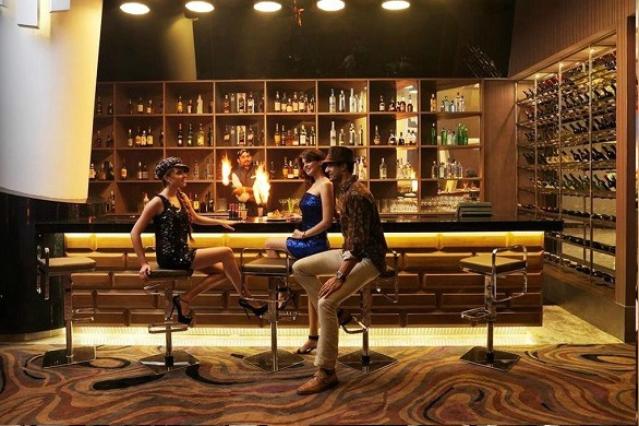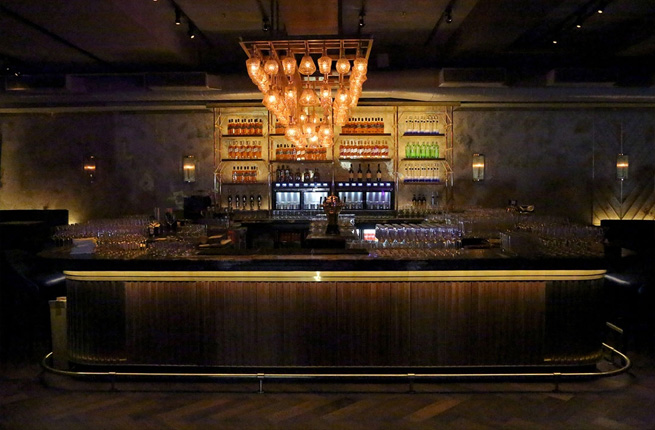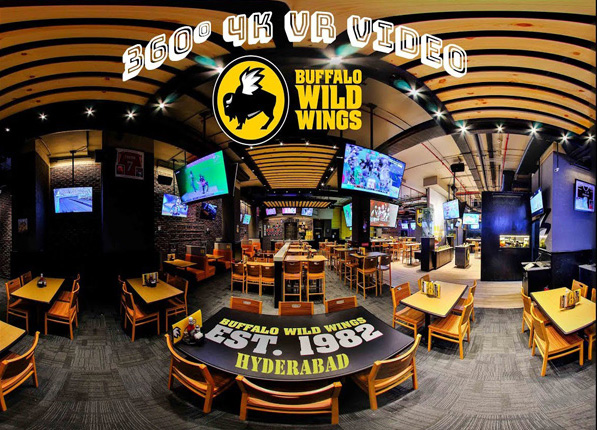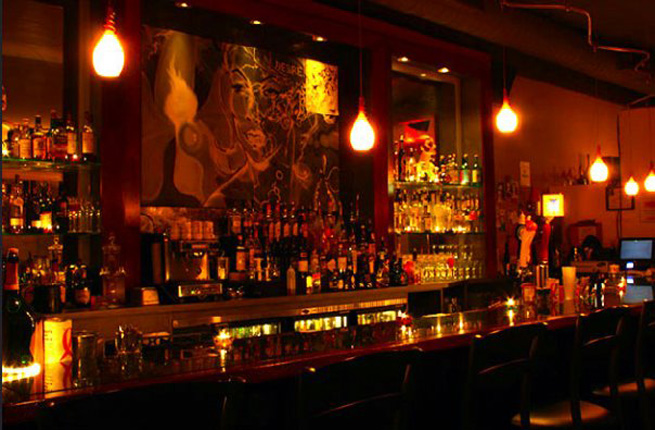
Everything you wanted to know about opening your own bar: finding the best concept, getting licenses, hiring the team and marketing.
And you are pretty determined to do so, but just don’t know where to get started. This guide is an advanced to-do list, clearly outlining all aspects of starting a bar business with examples, details, tips and valuable insights.
Ready to get one step closer to owning your dream establishment? Let’s get started.
When we thinking to start a bar business then so many question comes to our mind First Question come to our mind is which kind of bar should i start, so that i got more Beneficiary.
So Before you get started on the actual nuts and bolts of creating your dream bar, you have to decide what kind of establishment you’d like to own. Let’s take a trip through the various kinds of bars–from Neighbourhood bar to large-scale club-and see which one is right for you.
What's Your Bar Type?
Neighbourhood bar-
- Conceptually, the Neighborhood bar is still an American version of the English pub. You’ll find them everywhere in the United States. If you own this kind of place, you can expect to know many of your regular customers. It’s because of the friendly “home away from home” atmosphere that neighborhood bars are successful. Some of these pubs can open as early as 6 a.m., and they sometimes close earlier than other bars–depending on the clientele. This type of bar is perfect for small-scale entertainment options, such as darts, pool tables, video games and jukeboxes. It’s normally referred as funky spot where you can Kick back and lets loose with Friend.


Sports bar-
- Sports bars main focused on telecasting sports and entertainment for their guests. Most of the investment get made in numerous big screens, to small LED sets with some focused in providing the stadium effect with the music system. Bars normally prefer to have more of junk food or easy going food like nachos, burgers, and sandwich clubs and avoid proper cuisine food. These types of bars do also promote lot of games and one can find various games to play while enjoying their favorite game playing on screen. Owner can always explore from games like pool, snooker, Foosball, Ping Pong, darts, Video games and many more.
- Thoroughly research of the local sports team(s) are must. You’ll want plenty of authorized logos, posters, pictures, and other gear of theirs around your establishment. You might even consider contacting the team directly to see if joint-promotions are a possibility.
Brewpub or Beer Bar-
- Brewpub or Breweries are now in boom especially in India. With Delhi also opened the door for the microbrewery, you can definitely expect to see lot of them opening soon here. Major thing which differentiates Brewpub from other pubs are freshly made beer. Breweries tend to make a fresh beer in its own outlets and serving chilled directly from the beer tanks to the customers. You can definitely expect lot of various kinds of beers getting served in microbrewery. However, since beer is typically consumed more often than other liquors, it is often easier to turn a profit especially with the lower licensing costs as you are not stocking hard liquors.


Specialty bar-
- Specialty bars focus around a certain theme (e.g. cigar bars) or certain types of drinks (wine, martini bars). Yet, in both cases a specialty bar should offer a vast variety of products. For instance, martini bars, except for serving different types of martinis also offer martini-based cocktails and mixes. Specialty bars can be focused on wine. In cases such as wine bars, you will need to produce a wide selection of variety and vintage for patrons to enjoy. Bars like these can focus on other consumables like cigars. You will need to produce a wide variety of types and allow customers to learn about their qualities. Specialty bars tend to be smaller in size. Clientele will be more intimate and exclusive. Startup costs for these bars will vary greatly depending on your product choice.
Nightclub-
Term Night club as name says Clubs in Night. These clubs normally have a peak time after like 10 pm and built for people to enjoy music and the bigger dance floors to dance late nights. Some people can also consider following into Nightclubs i.e. Small cocktail lounges, mid-sized clubs that double as neighborhood bars by day, and large dance clubs that attract celebrity guest. Some clubs can also inbuilt a different floors and can play different music for each floor and you can chose the floor as per your music taste. Clubs are normally built to attract huge crowds and you can expect a heavy load on weekends.

Setting Up the Operation
Get the proper licenses-
- The regulations for getting the proper license to carry and serve alcohol for your bar can vary widely from location to location. These frequently have different rules by state, city, and county. There are also differences for the types of alcohol and if you are serving food.
- Get in touch with your local or state Alcohol Beverage Control (ABC) office.
- Ask the office what you will need licenses for including if you are selling beer, wine, and hard liquor. They may also be able to help with licensing if you are selling food.
- You may need to take a state approved course on food safety if you sell more than just sandwiches and appetizers.
- Often there are limited numbers of liquor licenses produced for a locality for the purposes of control. So you may have to buy your license from another citizen at least in the case of hard liquor. Some localities may require the license for any form of alcohol sale.
- Usually there is a mandatory waiting period for you to receive the license. This can be several weeks.
Calculate your startup costs-
- This is a substantial task in the business process. You may even consider hiring a business manager or accountant to assist you. You will need to figure out how much money you will need from a business loan or investment to begin your business. This way you can also know how much money you need to take in from patrons to turn a profit.
- Include costs for basic equipment such as: drinking glasses, sinks, storage racks, drink taps, beer and soft drink dispensing systems, coolers, freezers, ice bins, ice machines, ice picks, ice scoops, dishwashers, cabinets, and display cases/shelves.
- If you are serving even light food fare you need to include costs for kitchen equipment for snack preparation, sandwich making, coffee making, etc…
- Figure out how much you are paying for the building. You may be buying an existing bar or renting a location. Include costs of utilities (phone, electricity, heating, air conditioning, plumbing), maintenance, security systems, signage, and safety devices like smoke detectors in this.
- Total how much you will be spending on your initial inventory of alcohol and food.
- Figure out how much you will be paying your staff including bartenders, wait staff, managers, and any guest entertainers.
- Factor in costs for marketing, accounting assistance, retaining legal services, and insurance.
- Take ten percent of the total you have so far, then add that on as the cost for miscellaneous items you can’t predict.
Track The Business Flow of your Bar-
- You want to keep an eye on where alcohol, food, and money go in your bar. So build in a system from the start-up phase that does this.
- Money usually first goes to the bartenders and/or servers. Though, cashiers and takeout servers may also handle money.
- Create security logins and accounting redundancy for alcohol movement and money movement to protect your bar and your staff from theft.
- Verbal order methods may leave your bar vulnerable to drinks being given away for free. Consider tighter order and inventory systems.
Interview your staff-
Having employees you can trust around you is essential for a smooth operation, and happy clientele.
- When interviewing staff, including bartenders, have a couple of people interview applicants to get a better sense of professionalism, availability, and demeanor.
- Ask questions with open-ended implications such as “What are your professional strengths and weaknesses?” or “What would you do if you saw another employee stealing?” Let the bartender, manager, or wait staff show you their abilities and limitations.
- Be accurate about the hours, opportunities for advancement, and work load the potential bartender, wait staff, or manager can expect.
- Note stability in the applicant. If they tend to move from job to job within a year, this may indicate they will not stay at your establishment long either. Married employees tend to stay longer as well, though you should not necessarily exclude single applicants.
- Check the application for appearance and references. If there are inaccuracies or it appears sloppy, then this could indicate a lack of professionalism. This could also indicate poor attention to detail.
- Test their knowledge of drink mixing if they are a bartender.
- Ask about scheduling and transportation. You are going to be running a hectic business and they may need to be available on short and frequent notice. See how many hours they are will to work and how much they ask for in salary.
- If they are eager to learn your business, then this is a good sign of adaptability to conditions that might change as your bar business evolves. If they seem to “know it all,” then this might mean they are too stubborn to take direction from managers or other staff members.
Find the right location-
- Your choice of location will depend on how you want your bar to look, what you want your bar to contribute to the community, and the kind of clientele you want to patronized it. Then you need to decide whether you want to buy the location or sign a lease. Again, that depends on your budget. Finally, you need to figure out how to fuse your concept with both your name and your location to your best advantage.
- People who know this industry well have polar opinions on the concept of location. Some owners and experts we talked to put enormous importance on the bar’s location while others refuted its significance altogether. It all depends on what you want your bar to be and what your strengths are as an owner. If you want your bar to get impulsive neighbourhood traffic in a particular area, then you should be closest, and most obvious, to them. If you’d rather spend the time and money saved by more affordable real estate to develop your establishment’s concept and create your own buzz and destination, your actual location won’t matter so much.
Pick the right name for the bar-
- Naming your bar is up to you, but keep in mind this is the most important element to advertising your business to customers.
- Consider what customers the bar’s name will attract
- What would a stranger expect upon hearing the bar’s name? If you name the bar after the street corner of your location, make sure it’s that location and not the wrong street. Don’t name a bar “5th Avenue” when it’s physically located on 6th avenue.
- What name fits the concept you intend for the bar? If you’re making a high energy dance club, you don’t want to just name the place after yourself or like a sports bar. Conversely, if this is going to be an exciting all-inclusive sports bar, you don’t want to pattern the name after exclusive wine tasting clubs.
Start promoting your bar-
Direct advertising, websites, and word-of-mouth are key to getting patronage early on.
- Ideally, customers that first try your bar out of curiosity will spread the word if you’ve done a good job. This is the best, and cheapest way to advertise your bar and attract more patron.
- You can help yourself out by putting up a website and paying for some advertising on other websites.
- Have yourself and your staff participate in charitable and community events as representatives of your bar.
- For example, if there is a local blood drive, you can have your bar sponsor some of the snacks to the donors as they finish. Or if there is a local community market–you can work with the other members of your local chamber of commerce to sponsor games, host tables with flyers about parties at your establishment, offer samples or coupons if you have permits to do so.
Attracting Patrons
Create promotional events-
These can vary from community activities to major guest stars at your bar. You want to put your bar’s name out, and attract customers for a long time.
- Consider the schedule of when your bar is busy and when it’s not. Bars normally are busiest on Friday and Saturday nights. Sometimes Thursday nights are busy. If you want to boost business during the weekdays, you’ll need to adjust your marketing accordingly.
- Start advertising the event a month or two in advance. This will give patrons and yourself plenty of time to prepare.
- Budget for guest stars, extra staff, extra supplies, prizes, contests.
- Don’t set an end date or time in case you want to cut a bad promotion early or extend a good one to run longer.
- For example–you might have a local band scheduled for three nights, but they play so badly you need to cancel them after one night. Conversely, you could have a promotion for a video game contest at your sports bar that is bringing in lots of friends of the competitors that you might want to run an extra week.
Greet your guests personally-
Even if you are more interested in owning than operating your bar, you need to make time to get to know your patrons. If you are too opposed to making contact with your customers, this may not be a good business for you.
- At least go around and say “hello” to your customers if it’s a busy night.
- Ask customers how they are doing personally, especially if it’s a small gathering (such as in the specialty bar). You can take the time to get to know them a little.
- In neighborhood bar situations, you can expect regulars that you will get to know fairly well over time. Embrace this quality.
- In sports bars, get comfortable with the local teams and fans. Learn their tendencies, chants, and traditions. Incorporate them into your bar’s atmosphere.
Keep the music on-
During promotions, sporting events, dances, and the like… never completely “turn off” the music or atmosphere.
- You can reduce the volume or tone things down to speak or during some special activity, but you want to keep you energy constantly going.
- Save big prizes or announcements for after midnight or later so customers stay in-house longer.
Get feedback-
You can do this in person or with surveys. Find out what your customers think of promotions, guest stars, food, drinks, service, etc..
- This can also be done online.
- Find out what guest acts, celebrities, and bands were a hit with customers and which ones were boring and shouldn’t be invited back.
- Get feedback on your alcohol and food. You want to know how your liquor stock is holding up against demand and trends. For example–are specialty cocktails doing better than classics? Do your customers prefer more wine than beer? You can change how you buy accordingly.
- Pay attention to feedback on service too. If you have comments saying your service is too slow, whether or not you’re having a busy night, you may need to address issues with your staff.
- If feedback on your promotions is positive, you can mix and match the ones that are successful later on–maybe even make some of them periodic traditions such as an annual Fourth of July grill contest. If the promotions are not such a hit, you can modify or replace them.
Eliminate problems quickly-
Whatever issues come up as negative in feedback, you observe yourself, or are reported by others in your staff–deal with them swiftly. Besides poor financing, failure to understand the bar business is among the top reasons bars fail.
- Keep backup records for inventory of your alcohol and food supplies so you have something to check against for theft or mismanagement.
- If you’ve hired an outside accountant, then be sure both you and they have matching records for money transactions your bar has been making especially during the startup phase.
- While no one expects to hire thieves–if you suspect this is going on among your staff, confront it immediately once you have evidence.
Where can I find a business mentor?
Contact Us for Guide
Arcux Bar Zone Impex Pvt. Ltd.
D-26, LGF, Lajpat Nagar-2, New Delhi-110024
Phone:+91-1141552251
info@arcuxbarzone.com
www.arcuxbarzone.com
Copyright @ 2020 Arcux Bar Zone Impex Pvt. Ltd
